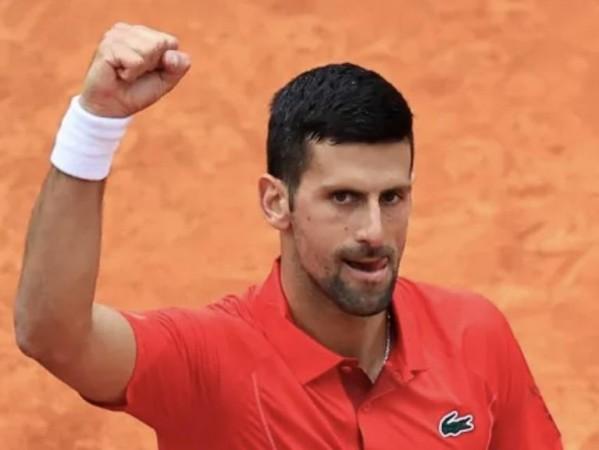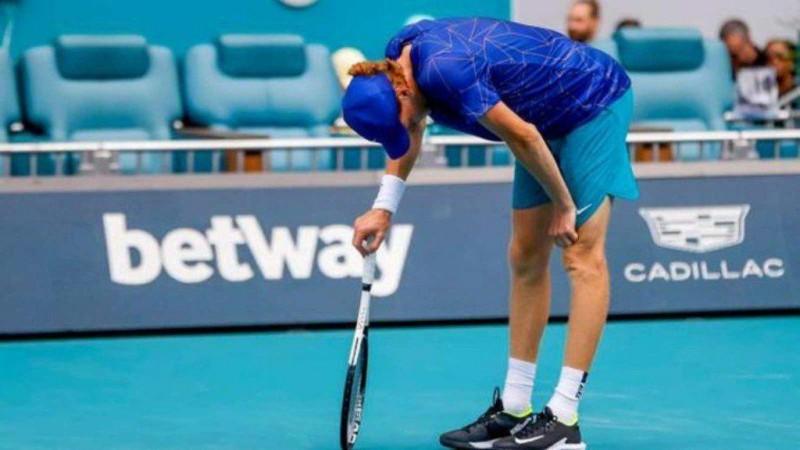
As the US Open looms, the tennis world is embroiled in a doping controversy that has seen the sport's top seed, Jannik Sinner, escape a ban despite testing positive for a banned substance. The incident has prompted calls for reform from none other than Paris Olympics gold medalist, Novak Djokovic, who has urged for clear protocols and standardised approaches to be implemented in the handling of doping cases.
Sinner, who twice tested positive for the steroid clostebol earlier this year, was provisionally suspended but continued playing after successfully appealing. The Italian's case was cleared almost immediately after it was announced, but not before five or six months had passed since the news of the positive tests reached him and his team.
The swift clearance of Sinner, now the top seed at the US Open, has sparked backlash across the sport, with prominent players expressing their dissatisfaction on social media.
Djokovic, a seasoned veteran of the sport at 37, has echoed these frustrations. I understand the frustration of the players because of a lack of consistency," the 24-time Grand Slam champion said. "His case was cleared almost immediately after it was announced, but five or six months had passed since the news of the positive tests reached him and his team."

The controversy surrounding Sinner's case centers on the substance he tested positive for - clostebol, a steroid known for its muscle-building properties. The International Tennis Integrity Agency (ITIA) determined that the substance had been inadvertently transmitted by his physiotherapist, Giacomo Naldi. Naldi, who was using an over-the-counter spray on a cut on his own hand, later treated Sinner, unknowingly contaminating the player. Following the ruling, Sinner ended his professional relationship with both Naldi and fitness trainer Umberto Ferrara.
However, the swift clearance of Sinner has sparked backlash across the sport. Prominent players, including Nick Kyrgios, Liam Broady, and Denis Shapovalov, took to social media to express their dissatisfaction, suggesting that Sinner may have received special treatment due to his high profile.
Djokovic, a seasoned veteran of the sport at 37, emphasised the need for reform in how tennis handles doping cases. "There are a lot of issues in the system. We see a lack of standardised and clear protocols. I can understand the sentiments of a lot of players questioning whether they are treated the same," he continued. "Hopefully, the governing bodies of our sport can learn from this case and take a better approach in the future."
One of the central concerns raised by Djokovic and others is the potential disparity in how doping cases are handled depending on a player's resources. "The question is whether it's a matter of funds," Djokovic pondered. "Can a player afford to pay a significant amount for a law firm that can more efficiently represent their case? That's something we need to collectively investigate to ensure that every player, regardless of ranking or status, gets the same treatment."
The Sinner case is not the first time the tennis world has been rocked by doping controversies. In the past, several high-profile players have been embroiled in similar situations, leading to calls for more transparency and fairness in the handling of such cases.
As the tennis world continues to struggle with these issues, the spotlight will undoubtedly remain on the sport's governing bodies and their handling of doping cases. The hope is that the controversy surrounding Sinner's case will serve as a catalyst for change, leading to the implementation of clear, standardised protocols that ensure fairness and transparency in the future. The tennis world awaits to see if the governing bodies will heed Djokovic's call for reform and ensure that all players, regardless of their status or resources, are treated equally in the face of doping allegations.








